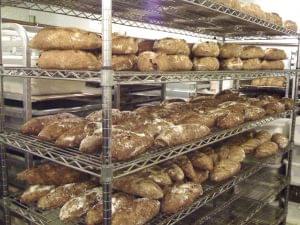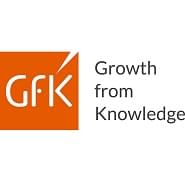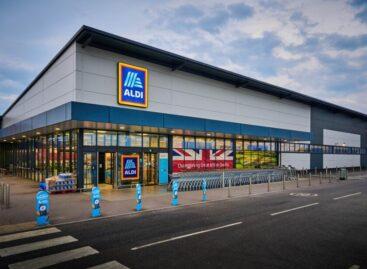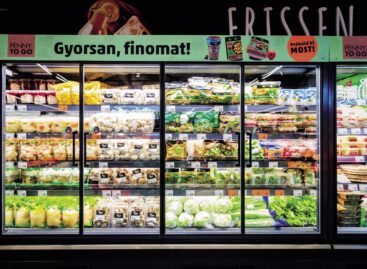Brave new bread
Supply chain issues had a big influence on the milling industry in the last few years, and the Ukraine-Russia war caused a shock on the raw material supply side, as a large proportion of cereals in the world market come from Ukraine. Climate change has an impact on European cereal production, resulting in less and lower quality grains in the last few years. Hungary’s baking industry isn’t very profitable in general, so baking firms are increasing product prices. In the shops consumers see even higher prices in the bakery section, as retailers are trying to cover their own elevated operating costs.
Experts say the price increase is going to continue in 2023, first and foremost because of the rapidly growing energy costs. Hungarian food inflation is one of the fastest in Europe, so more expensive bakery items don’t stand out in consumer perception, as all other foods are becoming pricier, too. Bakeries innovate based on the new dietary trends, and also because they are adopting new technologies. Technologically it is frozen ready-to-bake products that suit the needs of today’s long supply chains the best. Shopper demand is shifting towards bakery products with an added value.
Flour is available, but its quality is worse

Tamás Szakács
CEO
Hajdúsági Sütödék Group
Tamás Szakács, CEO of the Hajdúsági Sütödék Group: “There is enough flour in Hungary, but it is expensive, as the Hungarian market practically has broken away from the price movements of the world market. What is more, there are rumours that the price of flour will increase further. The prospects have never been gloomier than this year. Energy and raw material prices are rising, logistics and shipping costs are also climbing. This is why shoppers have to pay 60% more for bread than a year ago.”

Péter Kátai
B2B sales manager
Goodmills
Péter Kátai, BtoB sales manager of Goodmills: “We had no problems in sourcing during the pandemic or now that there is a war-induced crisis. It is the price of cereals that poses a challenge, which started to soar when the war broke out. There are quality issues as well, simply there isn’t enough high quality wheat available in the market. The problem is that poor quality cereals are almost as profitable for farmers as good ones.”

The quantity of quality wheat available on the market is steadily decreasing, experts say
Opening price scissors
Gabriella Molnár, head of sales at Celldömölki Malom Kft.: “It is unlikely that sales will drop in the baked goods category, but it is rather sure that fewer bakeries will supply the market than before. The price scissors will open, as regards the trend of small and medium-sized bakeries making quality breads and rolls, and large firms manufacturing ready-to-bake frozen products. Although shoppers are price-sensitive, they want quality and are willing to pay more for this: instead of buying 1kg of ordinary bread, they will only take home half a kilo, but really good bread.”
Tamás Szakács talked to us about their company working on its Smart Food programme for 20 years now, which combines health with quality food.
Natural product ingredients
Péter Kátai explained that the majority of consumers buy some kind of bakery item. In his view because of the elevating prices, shoppers are buying more consciously and the market has to react to this. Modern breads and rolls have to contain as many natural ingredients as possible.

Melinda Dorogi
managing director
Celldömölki Malom
Melinda Dorogi, managing director of Celldömölki Malom Kft.: “Our buyers are looking for traditional, sourdough breads and other baked goods, which are free from additives. Celldömölki Malom Kft. is in a special situation because we belong to an agri-group, so our cereal supply is ensured in-house. Production costs surged in the past 12 months, as wheat prices hit a historic high.”
Modern bread

Klára Ludwig
founder-managing director
Jókenyér
Klára Ludwig, founder and managing director of Jókenyér: “Hungarian taste is dominated by whet breads, so you can be a trendsetter simply by using flour made from another kind of cereal, e.g. rye and/or spelt flour, perhaps the wholemeal versions of these, or by adding nuts to the dough, in the spirit of a balanced diet; and of course there is the Renaissance of sourdough bread too. Baking and good bread earned the prestige they deserve in the past few years, and this has a lot to do with artisan wave.”

Miklós Osztermayer
managing director
Lantmannen Unibake
Miklós Osztermayer, managing director of Lantmannen Unibake zRt.: “What makes bread modern today? Consumers want artisan-type bread, made using traditional methods, sourdough, long fermentation, etc. They also like bread with health benefits, for instance if it is rich in fibres, made of wholemeal flour, contains various nuts or functional ingredients. The local product trend prevails in the bread category too.”

Each and every parameter of flour largely affects the end product
Price-sensitive market

Sándor Kasza
managing director
Golden Granet
Sándor Kasza, managing director of Golden Granet: “My view is that ‘clean label’ breads qualify as modern. This is why we make natural products using traditional methods. The market keeps changing and there are two opposite trends influencing this change: price increase and turning to quality.”

Szandra Germán
marketing coordinator
Nébar
Szandra Germán, marketing coordinator of Nébar Kft.: “Our experience is that the price increase of baked goods is about to reach the critical level where people might stop buying their usual products, and this can lead to major sales loss for bakeries. This year we are going to put a new type of crackerbread range on the market.”

Ágnes Siffel
head of marketing
Abonett
Ágnes Siffel, head of marketing at Abonett Kft.: “Just like in the bread and pastry categories, more and more products are available in the extruded crackerbread segment too. Our product selection consists of 15 classic, organic or gluten-free products, and 4 types of sandwich. ”
Consumer behaviour
Miklós Osztermayer underlined that shoppers are willing to pay more for bread with an added value, such as health benefits, sustainability or extra ingredients. This is why the market is growing more in value than in volume; of course this can change because of the inflation. Rising prices can change consumer behaviour, shoppers are likely to start buying more times but less when it comes to shopping for bread, rolls and pastries.
Klára Ludwig believes that educating consumers is very important. Sourdough bread made of wholemeal flour with nuts has positive nutritional and digestion effects. This kind of bread stays fresh longer, and one has to eat less from it because of the high fibre content. Jókenyér definitely has an answer to the questions of price-sensitive consumers. So far they haven’t experienced a sales drop since their products became more expensive.

A recent wave of artisan bakers has undoubtedly contributed to the rise in the prestige of the bakery sector and the value of good bread
Taste and texture
Sándor Kasza talked to Trade magazin about the popularity of simple flavours, such as millet bread. The absolute favourite products combine this creatively with exciting ingredients, such as vegan cheese – this is how the Granet scone is made.
Szandra Germán thinks dough baked to be crispy and well-designed, modern and practical packaging make Nébar Kft.’s products popular.
Ágnes Siffel said: shoppers don’t just want flavour diversity, but also healthy choices, high quality and practical solutions. This year’s new product from the company is VeganPro, which is low-carb and rich in plant-based protein. //
Our daily bread……
GfK’s Consumer Panel report reveals that like-for-like bread volume sales were down 8% in July 2022, while value sales increased by 11%.


Guest writer:
András Kuntner
business development
manager/retail
GfK
Hungarian households buy bread 6% fewer times than before, 96 times per year on average. The price of bread grew by 21% and 1kg now costs HUF 587. Hungarians like white bread the most: this variety is responsible for 47% of sales. Although toast bread still only has a 10% volume share in the category, sales are growing steadily.
Discount supermarkets are the main places for buying, and they even managed to increase their share in sales in the last few years. The average Hungarian household buys 79kg of bread a year. Which consumer groups buy considerably more? Families with minimum 5 members, villagers, and households where the housewife is minimum 50 years old. //
We follow the dietary trends

István Mikos
managing director
Ceres
As one of Hungary’s top baking enterprises, we offer several products to consumers that fit into a conscious diet. Ceres keeps monitoring dietary trends, as we specify our innovation directions based on these. This year we launched a Vegetable Loaf made with special oat sourdough, which contains tasty vegetable bits plus pre-cooked nuts. Ceres is proud to be ranked 8th in Kantar’s Top 25 of the most chosen brands in Hungary. //
This article is available for reading in Trade magazin 2022/11
Related news
Aldi targets 20 new store locations across the UK
Aldi has unveiled an updated list of priority locations across…
Read more >Customer experience and sustainable solutions: PENNY’s successful year
In 2024 PENNY Magyarország focused on preserving customer trust by…
Read more >Lidl holds on to its market leader position – they celebrated 20 years in Hungary last year
Last year Lidl celebrated 20 years in Hungary by investing…
Read more >Related news
GKI analysis: Why do Hungarian households live more poorly than anyone else in the EU?
Imagine that the residents of every EU country shop in…
Read more >KSH: industrial producer prices decreased by 0.7 percent in May 2025 compared to the previous month, and increased by an average of 6.9 percent compared to a year earlier
In May 2025, industrial producer prices were 6.9 percent higher…
Read more >Consumption drives the economy
According to the latest forecast by the Balance Institute, the…
Read more >






